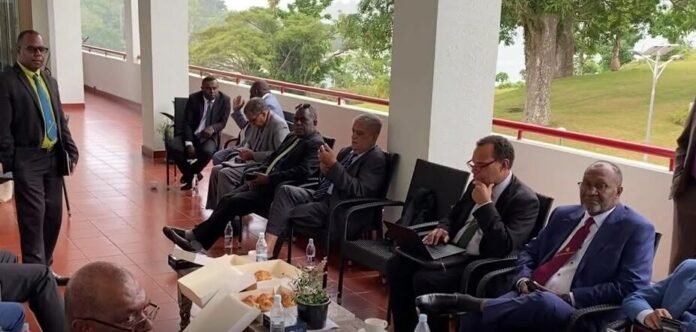In the South Pacific, the island nation of Vanuatu recently confronted not only the physical devastations of natural disasters but also the consequential chal lenges to its democratic processes. As the nation proceeds with its general election amidst recovery efforts, it exemplifies resilience in the face of adversity.
The seismic activities that struck Vanuatu before the elections resulted in widespread destruction, forcing residents to prioritize survival and rebuild before political engagement. Yet, even under these circumstances, the election represents a significant commitment to democratic governance, offering a beacon of hope and unity for the nation’s populace.
The political landscape in Vanuatu is characterized by coalition dynamics and
varying priorities such as economic development, disaster preparedness, and international aid dependency. This election could chart a new course in how these issues are addressed moving forward.
Democracy in Vanuatu has historically shown vulnerability to disruptions from natural events, given the country’s location in a disaster-prone area. However, it has also demonstrated a remarkable ability to integrate traditional governance practices with modern democratic expectations.
For the international community, Vanuatu’s election serves as a testament to the challenges facing nations that lie on the frontlines of climate change and geopolitical marginalization. These elections are closely watched as indicators of how environmental resilience can translate into political stability.
The outcome of this election will not only influence the trajectory of Vanuatu’s recovery and development strategies but also highlight significant issues related to disaster governance—an area of rising importance amidst increasing climatic threats impacting small island communities worldwide.
Perspectives
Perspective 1: Pacific-focused analysts, such as those from The Pacific Islands Forum and Radio New Zealand, see the elections as pivotal in advancing disaster resilience and sustainable development goals.
Sources:
Perspective 2: Local perspectives, including insights from the Vanuatu Daily Post and Loop Vanuatu, suggest these elections are critical for set ting national recovery priorities post-disaster.
Sources:
Perspective 3: Environmental scientists and climate economists high light the election’s global context, noting its implications for international climate policies, as covered by Climate Central and Nature.
Sources:
